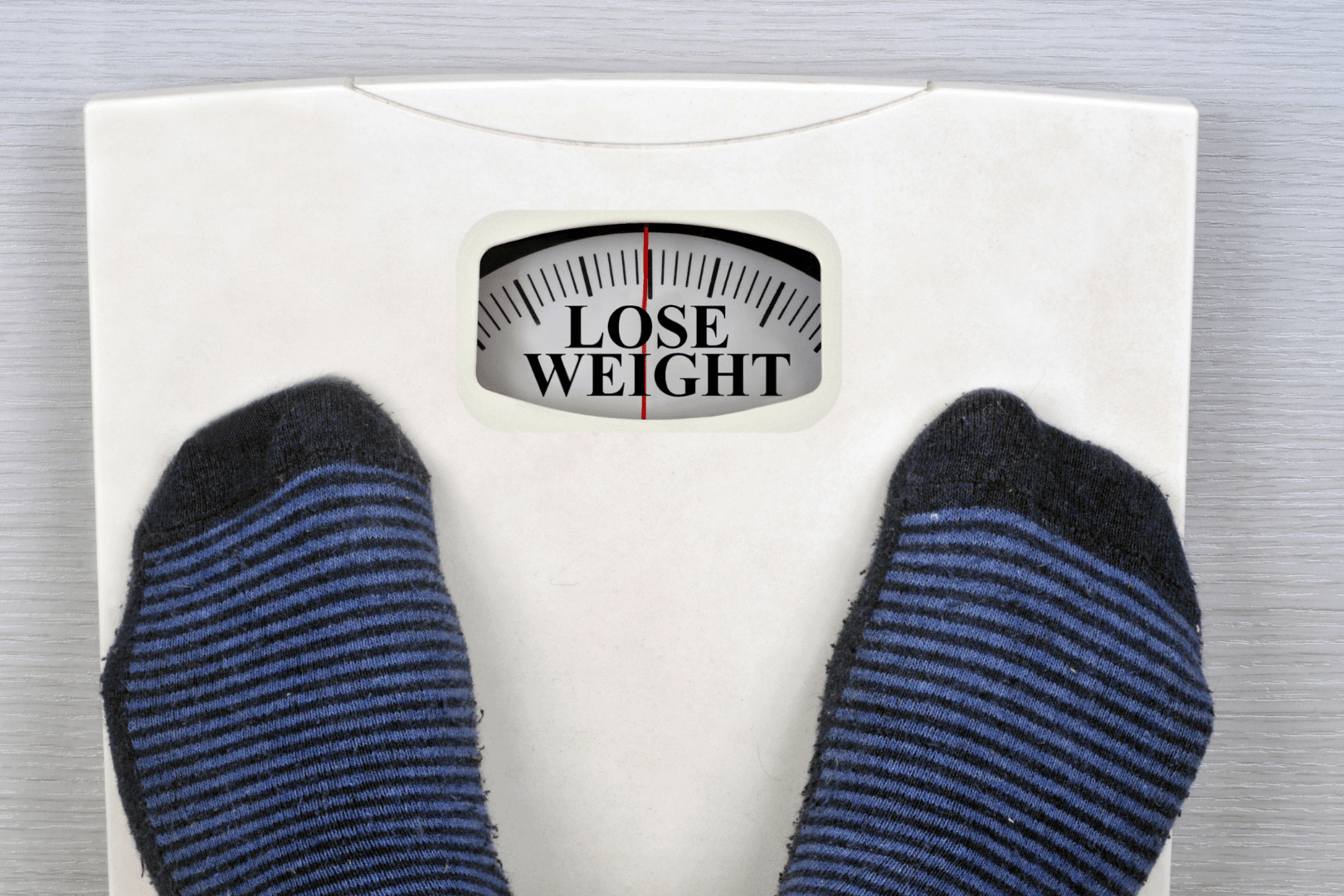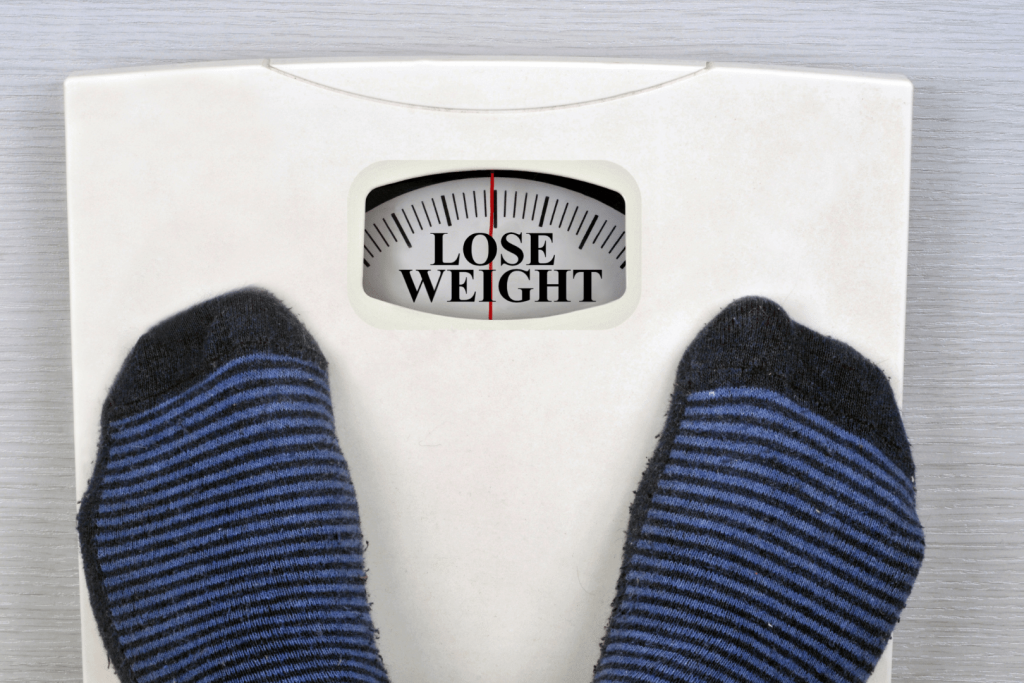
Top 17 Reasons Why Diets Fail and Lead to Fast Weight Rebound


Top 17 Reasons Why Diets Fail and Lead to Fast Weight Rebound
Studies have confirmed that long-term weight loss maintenance is extremely rare.. This usually includes hiring coaches, trainers, nutritionists, and psychologists, maximizing their success odds.
The smartest path to success is to understand other people’s mistakes and learn from them. Insanity is ignoring them and repeating the same mistakes over and over.
Let’s dive into the 17 most common reasons people fail with their weight loss goals.
1. Losing weight Too Fast

Dieting too quickly is THE fundamental reason almost all diets fail.
“12-week transformations” and other short-term diet goals are some of the main culprits for these weight-loss failures.
The faster you lose body fat and the more fat you lose, the harder your body fights back. The “speed of weight loss” seems to be the main trigger.
If you’re losing too much body fat too fast, it will activate your starvation self-defense mechanisms, and that’s when you’re screwed.
The key is to develop a long-term vision. “Playing the tape forward” is a valuable mental process you can use in various ways to get out of your short-term desires. Imagine two futures:
Future #1: You go “all in” and cut your calories severely, train like a pro athlete, and lose weight over the next three months. Then you experience the Starvation Survival Effects: your metabolism drops, your hunger goes out of control, and you quit. Fast forward a few months, you’ve regained all the weight you dropped, and you give up on your aesthetic goals.
Future #2: You do it intelligently and take a bit more time to lose weight. You get to enjoy a better lifestyle than the “hardcore dieter.” Your body feels safe, and you reach your dream goal and stay there for the rest of your life.
Which future sounds better? Choose your fate carefully.
2. No Diet Breaks And Refeeds
Diet breaks and refeeds are two of the most important tools to prevent the Starvation Survival Effects from kicking in. They help the body FEEL SAFE by giving it more calories. They help slow down the metabolic adaptation that occurs. When your body eats at maintenance or above, starvation no longer threatens it.
3. Following An Unsustainable Diet
“Unsustainable Diets” take many shapes and forms:
- Are you giving up foods that you love?
- Are you forcing yourself to eat foods you don’t enjoy?
- Are you too hungry?
- Are you nutrient deficient?
- Is it psychologically or spiritually unaligned with you?
Can you follow a strict, unsustainable diet for a short period and achieve great results? YES. Anyone with some willpower can cut calories using drastic measures, but the real question is: “What’s next?” What are you going to do AFTER?
If you choose to do an unsustainable diet, just make sure you’ve got another dietary strategy lined up after it; otherwise, you’re setting yourself up for guaranteed failure.
To be successful FOR LIFE, you must find a nutritional philosophy that you can follow FOR LIFE.

4. Not Addressing Traumas And Emotional Eating
Most people who are overweight use food as a drug. Food has drug-like effects on both dopamine and serotonin. People with food issues use food to escape their emotional pain or boredom.
Eliminating traumas from your nervous system is as important as eliminating Ben and Jerry’s from your freezer.
When most people hear “trauma,” they think of rape and violence victims and other horrific experiences. Of course, these Big Traumas are extremely traumatic.
However, virtually everyone carries hundreds of what experts call “Little Traumas.” What’s a “Little Trauma?” 4 conditions lead us to experience trauma:
- A painful event
- It was unexpected
- We felt alone
- We didn’t have the resources to process the pain
Most people accumulate traumas because they don’t learn to process the pain. Often, it shows up as excess weight that won’t stay off.
The answer is to examine your emotional issues and systematically clear them using tools such as EFT (emotional freedom techniques or “tapping”), forgiveness work, neurofeedback, EMDR, or other modalities.
Does this help with weight loss? Yes, it does.
Dawson Church’s, one of the world’s leading EFT researchers, data shows people lost between 11 and 22 pounds in the year using tapping. More importantly: they kept it off. The emotional impulses to escape with food were removed.
5. Not Tracking Food Calories And Macros, Sleep, And Exercise
This one is a mixed bag. Can you lose weight without measuring food and tracking calories? YES, especially early on.
Most people unconsciously “sneak in” calories in various ways: a handful of nuts here… a tablespoon of peanut butter there… a piece of chocolate after dinner, etc… (NOTE: unconscious eating is one of the body’s defenses).
If they’re part of your plan, there’s nothing wrong with those things, but those “little snacks” can become the difference between losing weight and becoming stuck.
You can’t improve what you don’t measure. It’s critical to create feedback loops.

6. No Coaching Or Accountability In Place
This might sound surprising, but you CAN’T trust yourself in keeping yourself accountable in your weight loss journey. Why?
Two primary reasons:
First, the odds of creating the right strategy are low unless you’re a deep expert.
Second, your starvation self-defense mechanisms can easily override your conscious mind. This is the big one, even for people like us.
Even though we’re deep experts, we don’t trust ourselves to keep us accountable like an outside authority can. Why? Because…
- We can create easier training plans (i.e., not including squats and deadlifts).
- We can resist cutting calories when we need to.
- We can slide totally off course when we “slip,” meaning if we have a bad day or week, do we have a coach to refocus us?
- We can fail to add new things to keep results flowing (like adding in a second workout).
So, for long-term success, coaching and accountability will exponentially improve your odds of success.
7. Low-Quality Sleep
What are the consequences of bad sleep when it comes to dieting?
The short answer is you will get fatter, lose muscle, destroy your willpower, be in a horrible mood, and crash your immune system.
Low-quality sleep means your hunger hormones increase; your cravings increase, you start burning lean muscle mass instead of body fat, your willpower decreases, and your fat-burning hormones (HGH and testosterone) decrease.
Sleep deprivation (5.5 hours nightly) makes you burn more muscle and less fat even if you lose weight.
Sleep also increases your hunger and cravings, which can kill your diet.
A two-week experiment was done on ten overweight adults. The 5.5 hours of sleep per night group lost 55% less fat and 60% more muscle than the 8.5 hours of sleep per night group. Beyond this, the 5.5hrs group also reported greater cravings than the 8.5hrs group.
Their levels of the hunger hormone ghrelin increased by 28%.
Therefore, great sleep is one of the biggest “make or break” factors for losing weight.
8. Not Addressing Other Health Problems
You could call this one an indirect cause of diet failure. The right diet will make you HEALTHIER.
Other underlying health problems such as hormonal issues, thyroid issues, gut issues, fatty liver, and much more can make losing body fat and being healthy a tough journey.
9. Losing Mental Vigilance
Loss of mental vigilance is one of the main causes of long-term dietary failures. Once you lose mental vigilance, it’s usually the beginning of the end.
People stop paying attention to their weight. They stop tracking calories and macros and unconsciously start increasing calories. It’s easy to drop exercise habits and default to old eating habits. Food quality selection goes down.
Maybe the most fatal of all is: they get rid of their coach. A great coach helps you MAINTAIN mental vigilance. They call you out when they see you slipping. They help bring awareness when awareness is slipping away.
Do you know when you need THE MOST mental vigilance during weight loss?
AFTER YOU’VE ACHIEVED YOUR GOAL.
Why?
First, that is the most dangerous point for the Starvation Survival Effects to kick in. Hunger usually goes into overdrive. Motivation can drop massively after achieving a significant goal.
Your body releases dopamine, a neurotransmitter responsible for happiness and motivation, when you’re working towards a goal, and anytime you hit a milestone towards that goal. It’s that release that keeps you moving forward. But when the goal is reached, that neurotransmitter release drops.
10. Not Considering Genetics
Nutrigenomics is the science of nutrition and genes. This is one of the most exciting new fields of health and nutrition. It’s still early. However, massive amounts of research and discoveries are happening at an accelerated rate.
Without understanding your genetic tendencies, following any popular diet often puts square pegs in a round hole. Working against your genes will always be an uphill battle.
Some people are genetically fat burners, so they feel great with a ketogenic diet. Others who don’t have the same genes struggle to enter ketosis and feel stressed on a ketogenic diet.
Some people feel amazing while they’re fasting, and others enter into a catabolic state, meaning that they’re losing precious lean muscle tissue.
Your genetics and constitution also affect your body shape and tendency to store fat, which should be considered when setting your aesthetic goals.

11. Chemical Overload
An average human in 2020 is being exposed to over 80,000 man-made chemicals.
A 2009 study by the Environmental Working Group found over 200 toxic chemicals in cord blood samples of newborns. Before a woman leaves the house in the morning, she has already been exposed to over 500 toxic chemicals through her cosmetics and body care products.
Rodent studies showed that it only takes one endocrine disruptor to cause obesity without eating more food.
These man-made chemicals can elevate your metabolic setpoint by:
- Disrupting the functions of sex hormones, thyroid, leptin, and insulin
- Causing prolonged low-grade chronic inflammation
- Increasing micronutrient use and excretion, which may cause or worsen deficiencies
- Inhibiting digestive and cellular enzyme activity
- Throwing off your gut biome
These changes can lead to obesity, metabolic syndrome, autoimmune disorders, and more.
Therefore, if your goal is to be biologically optimized and achieve long-term results, you must actively detoxify your body and lower your toxic burden.
12. Poor Digestion
Poor digestion is another indirect contributor to diet failures.
One of the keys to finding the right nutritional approach for you is to FEEL GREAT. Feeling great helps you have more energy, drive, and motivation. Poor digestion can make it hard or impossible to feel awesome and thus impact the results. It can easily lead to people quitting a diet.
Suboptimal digestion, such as from enzyme deficiencies, low stomach acid, and an unhealthy gut biome, will leave more undigested food particles that can stimulate the immune system and feed bad gut bacteria. This can also lead to food allergies and sensitivities, allowing yeasts and parasites to grow.
Poor digestion can also lead to poor inflammatory response, impacting your entire body and weight setpoint.
13. Leaky Gut, Food Sensitivities, And Food Allergies
Being biologically optimized is critical for feeling your best. That’s why removing foods that are toxic and stressful to your body is important.
One person’s “superfood” is another person’s toxin.
Many common foods in the modern diet can open up the gut barrier, such as:
- Gluten can activate the zonulin pathway and open up the gut barrier, even in non-celiacs
- Industrial food additives, such as food texturizers
- Excess amounts of sugar or salt
- Casein from A1 milk causes digestive issues, and partially digested peptides can be absorbed into the blood
If you are healthy, your gut should be able to recover from these just fine.
However, for those with poor inflammatory response, a leaky gut can expose undigested food and bacteria toxins to the immune system. They then develop food sensitivities, allergies, and metabolic endotoxemia, causing more inflammation.
This leads to leptin resistance and many modern ailments. A leptin-resistant brain is a starved brain in a fat body. It cannot sense that your body is well-fed, so you continue to be hungry while your hypothalamus reduces all non-essential energy expenditures.
In other words, diets that don’t remove sources of inflammation and repair leaky guts tend not to produce sustainable results for these people.
14. Vitamin, Mineral, And Nutrient Deficiencies
Many diets can cause various nutrient deficiencies.
Nutrient deficiencies can impact multiple ways, but the two most significant ones are:
- Systems in the body can become compromised. For example, your thyroid can become less active and thus lower your metabolism if you’re deficient in iodine.
- You just quit either because of the awful cravings from your body trying to patch the deficiencies or because the nutrient deficiencies make you feel awful.
15. Protein Deficiencies

Amino acids, and thus protein, are LITERALLY the building blocks of life. It’s believed that around 4 billion years ago, something magical happened. Many scientists believe a miraculous dance of molecules called amino acids is partly responsible for the shift. They eventually came together to create life as we know it.
Your body needs amino acids to thrive. Amino acids are obtained from protein. Your body breaks down protein into amino acids using enzymes.
Amino acids rebuild muscle tissue, peptides, neurotransmitters, organs, etc. It’s the KING macro when it comes to dieting for weight loss, muscle building, or athletic performance.
The Standard American Diet is too high in fat and carbohydrates and too low in quality protein.
Most effective diets are higher in protein because protein is more satiating and has a higher thermogenic effect.
Calorie for calorie, protein breakdown takes 30% more energy to digest and assimilate than carbs and fats. In other words, if you replaced 1,000 calories of carbs and fats with protein, you’d be burning an additional 300 calories a day with the same amount of calories. That’s an extra 300 calories a day deficit, which is a lot.
Protein is also muscle-sparing if you are in a caloric deficit. The importance of this cannot be overstated. When you’re losing body fat, protecting your lean muscle tissue is one of the top priorities.
16. Essential Fatty Acid Deficiencies
There is one more essential macro, and it’s fats. Most people are overconsuming the wrong type of fats and are extremely deficient in essential fatty acids (EFAs). EFAs are the most important type of fats you should focus on consuming.
The Standard American Diet and even most weight-loss diets are too high in omega-6 and too low in omega-3, which increases inflammation and reduces insulin sensitivity. Your health can improve radically by balancing the inflammatory omega-6s with anti-inflammatory omega-3s.
Fats are another building block of the body. Hormones, the brain, hair, skin, organs, and other tissues all use fats to build themselves. Fats become a part of your body. That’s why selecting high-quality fats and minimizing bad fats tend to create a big improvement in lipid profiles and brain function.
The two primary fat factors to focus on are:
- Optimize your fats based on your diet
- Be mindful of your genetic mutation related to fat metabolism
The bottom line is to optimize the fats based on your best-personalized diet and genetics.
17. Losing Too Much Lean Muscle Tissue
This is one of the biggest problems with many people’s weight loss approach. They don’t have the right strategy to preserve their vital lean muscle tissue as they lose weight.
Why is that so important?
Because lean muscle tissue has the following key benefits:
- Makes you look better
- Stores Glucose: Muscles are fantastic carb storage units. This helps prevent blood sugar-related health problems.
- Increases Your Basal Metabolic Rate: Meaning you have a faster metabolism. Each pound of fat-free weight has been calculated to use about 8 to 15 calories per day.
- Vital For Movement: Whether you’re a professional athlete or an elderly person, muscles are what allow you to move in the world. And when you get older, they’re a lifesaver.
References
- Field AE, Wing RR, Manson JE, Spiegelman DL, Willett WC. Relationship of a large weight loss to long-term weight change among young and middle-aged US women. Int J Obes Relat Metab Disord. 2001;25(8):1113-1121. doi:10.1038/sj.ijo.0801643
- Sarlio-Lähteenkorva S, Rissanen A, Kaprio J. A descriptive study of weight loss maintenance: 6 and 15 year follow-up of initially overweight adults. Int J Obes Relat Metab Disord. 2000;24(1):116-125. doi:10.1038/sj.ijo.0801094
- Votruba SB, Blanc S, Schoeller DA. Pattern and cost of weight gain in previously obese women. Am J Physiol Endocrinol Metab. 2002;282(4):E923-30. doi:10.1152/ajpendo.00265.2001
- Church D, Stapleton P, Sheppard L, Carter B. Naturally thin you: Weight loss and psychological symptoms after a six-week online clinical EFT (emotional freedom techniques) course. Explore (NY). 2018;14(2):131-136. doi:10.1016/j.explore.2017.10.009
- Leproult R, Van Cauter E. Effect of 1 week of sleep restriction on testosterone levels in young healthy men. JAMA. 2011;305(21):2173-2174. doi:10.1001/jama.2011.710
- Nedeltcheva AV, Kilkus JM, Imperial J, Schoeller DA, Penev PD. Insufficient sleep undermines dietary efforts to reduce adiposity. Ann Intern Med. 2010;153(7):435-441. doi:10.7326/0003-4819-153-7-201010050-00006
- Morselli L, Leproult R, Balbo M, Spiegel K. Role of sleep duration in the regulation of glucose metabolism and appetite. Best Pract Res Clin Endocrinol Metab. 2010;24(5):687-702. doi:10.1016/j.beem.2010.07.005
- Asociación RUVID. Dopamine regulates the motivation to act, study shows. Science Daily. Published online January 10, 2013. Accessed November 22, 2022. https://www.sciencedaily.com/releases/2013/01/130110094415.htm
- Liu C, Kaeser PS. Mechanisms and regulation of dopamine release. Curr Opin Neurobiol. 2019;57:46-53. doi:10.1016/j.conb.2019.01.001
- Diamanti-Kandarakis E, Bourguignon JP, Giudice LC, et al. Endocrine-disrupting chemicals: an Endocrine Society scientific statement. Endocr Rev. 2009;30(4):293-342. doi:10.1210/er.2009-0002
- Bansal A, Henao-Mejia J, Simmons RA. Immune system: An emerging player in mediating effects of endocrine disruptors on metabolic health. Endocrinology. 2018;159(1):32-45. doi:10.1210/en.2017-00882
- Lerner A, Matthias T. Changes in intestinal tight junction permeability associated with industrial food additives explain the rising incidence of autoimmune disease. Autoimmun Rev. 2015;14(6):479-489. doi:10.1016/j.autrev.2015.01.009
- Brooke-Taylor S, Dwyer K, Woodford K, Kost N. Systematic review of the gastrointestinal effects of A1 compared with A2 β-casein. Adv Nutr. 2017;8(5):739-748. doi:10.3945/an.116.013953
- Scripps Research Institute. A chemical clue to how life started on Earth: Every living thing stems from the same limited set of 20 amino acids, and now scientists may know why. Science Daily. Published online August 1, 2019. Accessed November 22, 2022. https://www.sciencedaily.com/releases/2019/08/190801093310.htm
- Weinsier RL, Schutz Y, Bracco D. Reexamination of the relationship of resting metabolic rate to fat-free mass and to the metabolically active components of fat-free mass in humans. Am J Clin Nutr. 1992;55(4):790-794. doi:10.1093/ajcn/55.4.790
